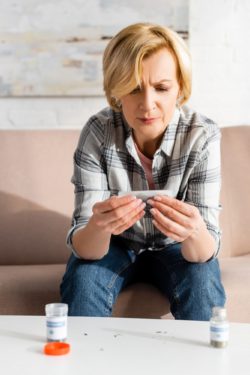Top Class Actions’s website and social media posts use affiliate links. If you make a purchase using such links, we may receive a commission, but it will not result in any additional charges to you. Please review our Affiliate Link Disclosure for more information.
UPDATE: On Nov. 5 the Supreme Court of Canada reportedly declined to hear an appeal of the tainted Organigram class action lawsuit. As a result, the earlier Nova Scotia Court of Appeal ruling, which found that there was no workable methodology to determine whether alleged adverse health claims have a common cause, will stand.
The Nova Scotia court ruled that the plaintiff did not provide sufficient evidence to show that the Organigram cannabis products caused adverse health effects and therefore Class Members cannot claim damages for this reason. However, it is possible that they may be able to pursue refunds for cannabis products purchased in 2016.
Following the Nova Scotia appeals court decision, Organigram said in a statement that it would continue to fight the tainted cannabis class action lawsuit.
“Organigram will continue to defend what remains of the class action as it has already voluntarily reimbursed many of its customers for this recall via a comprehensive credit and refund program,” the cannabis company said.
The Supreme Court did not state a reason for declining to hear the case.
Ray Wagner, who represents the plaintiff in the Organigram class action lawsuit, told CBC News that the plaintiff was “obviously disappointed, but thankful that we did our best to do what we could to try to bring this to the light of day and to compensate people for the harm that’s been caused to them.”
A class action lawsuit alleging Organigram cannabis had been treated with pesticides may head to the Supreme Court of Canada, if the court decides to hear the case.
Plaintiff Dawn Rae Downton, a medical marijuana user, initially filed the Organigram class action lawsuit in Canada in 2017 following the recall of the cannabis products. Dawn says the pesticide-treated cannabis made her and other consumers sick. The cannabis products reportedly tested positive for myclobutanil and bifenazate, which are pesticides prohibited for use on cannabis.
Plaintiff Says Organigram Products Made Her Sick
Dawn alleges that she, along with about 5,000 other consumers, purchased the tainted Organigram cannabis products. Class Members allegedly suffered from breathing difficulty, gastrointestinal problems, headaches and nausea after smoking the pesticide-treated cannabis. These issues reportedly subsided after the user stopped smoking the affected products.
In Dawn’s case, she says she lost 30 pounds due to nausea and vomiting after smoking the tainted cannabis products.
“However, since human trials are not typically conducted with prohibited substances, the full extent of harm inflicted on the Plaintiff and Class Members is currently unknown,” Dawn argues in a Leave to Appeal before the Supreme Court of Canada.
The Organigram class action lawsuit originally included consumer claims as well as claims for unjust enrichment and personal injury. However, Organigram appealed the court’s rulings regarding the unjust enrichment and personal injury claims, which were ultimately nixed by the Nova Scotia Court of Appeals.
According to the Organigram tainted cannabis class action lawsuit, some of the pesticides found in the cannabis produce hydrogen cyanide when combusted, which may have caused the Class Members to become sick. However, the appeals court dismissed this argument after determining there was no way to know that the pesticides caused the Class Members’ symptoms because there haven’t been studies regarding the effects of the specific pesticides in Organigram cannabis products.
Plaintiff: Canada Law Has No Method of Accountability for Infliction of ‘Novel Harm’
Dawn has asked the Supreme Court of Canada to reconsider the appellate court’s decision to strike personal injury claims from the Organigram class action lawsuit, arguing that “the result is antithetical to the principles of tort law” and that it “runs counter to tenets of class actions….”
According to the court documents, these tenets of class actions include access to justice, efficient use of judicial resources, and holding wrongdoers accountable by modifying their behaviour.
“Canadian law has no existing means of allocating the consequences of unknown risk,” the Notice of Application to the Supreme Court states. “There is no legal mechanism to prevent tortfeasors from enjoying a form of common law immunity for wrongful conduct that inflicts novel harm.”
Raymond Wagner, the lead lawyer representing the Class, argues that the Nova Scotia Court of Appeals has made it nearly impossible for consumers seeking damages for harm related to a new product to hold a defendant accountable.
“This basically gives a free pass for people that are doing things unlawfully,” Wagner said.

Dawn is asking the Supreme Court of Canada to provide guidance on two legal issues related to novel harm. The first issue is related to how to resolve inconsistent approaches throughout Canada regarding the “workable methodology” standard in Canada class action lawsuits. The second issue is about how to infer causation in situations in which a defendant’s alleged wrongdoing “has undermined traditional methods of proving cause-in-fact.”
“Simply put, this proposed appeal asks whether unknown (but knowable) risks should be assumed by the wrongdoers who create them, or whether wrongdoers will continue, as under the existing law, to enjoy common law immunity for inflicting novel harm,” according to the Leave of Appeal before the Supreme Court of Canada.
Organigram Class Action Will Proceed Even if Supreme Court Declines to Hear Case
The Organigram class action lawsuit will be allowed to continue whether or not the Supreme Court of Canada decides to hear the case. As it stands, the case can move forward and allow Class Members to seek refunds for the tainted Organigram products they purchased.
If the Supreme Court of Canada agrees to hear the case and disagrees with the Nova Scotia Court of Appeal’s ruling, Class Members may be permitted to seek compensation for personal injury caused by the tainted Organigram cannabis products.
Cannabis companies have recently come under fire for allegedly misrepresenting the amount of THC in their products. According to a $500 million class action lawsuit, testing of some cannabis products has shown the THC content to be “drastically different” than advertised.
Top Class Actions will continue to post updates on the Organigram class action lawsuit. Click the “Follow Article” button at the top of this page to get the latest updates about the Organigram class action lawsuit by using your free Top Class Actions account. For the latest updates, keep checking ca.TopClassActions.com or sign up for our free newsletter.
Have you ever become sick after ingesting a cannabis product? Tell us your story in the comment section below!
Class Members are represented by Wagners Law Firm.
The Organigram Cannabis Class Action Lawsuit is Dawn Rae Downton v. Organigram Holdings Inc., et al., in the Supreme Court of Canada.
ATTORNEY ADVERTISING
Top Class Actions is a Proud Member of the American Bar Association
LEGAL INFORMATION IS NOT LEGAL ADVICE
Top Class Actions Legal Statement
©2008 – 2024 Top Class Actions® LLC
Various Trademarks held by their respective owners
This website is not intended for viewing or usage by European Union citizens.


















One thought on Organigram Tainted Cannabis Class Action Lawsuit Heads to Supreme Court
I have had very similar symptoms from “Broken Coast “ cannabis products .
Mainly headaches and diarrhea.
Only with “Broken Coast “ products .
All other cannabis company products felt fine on my body